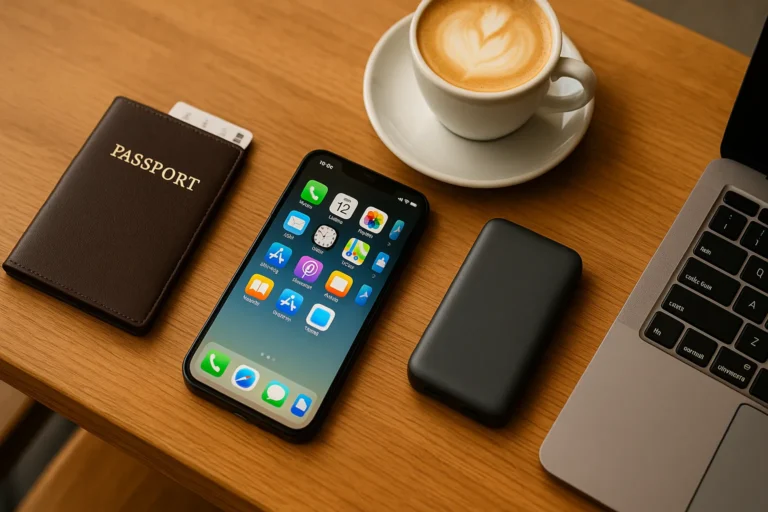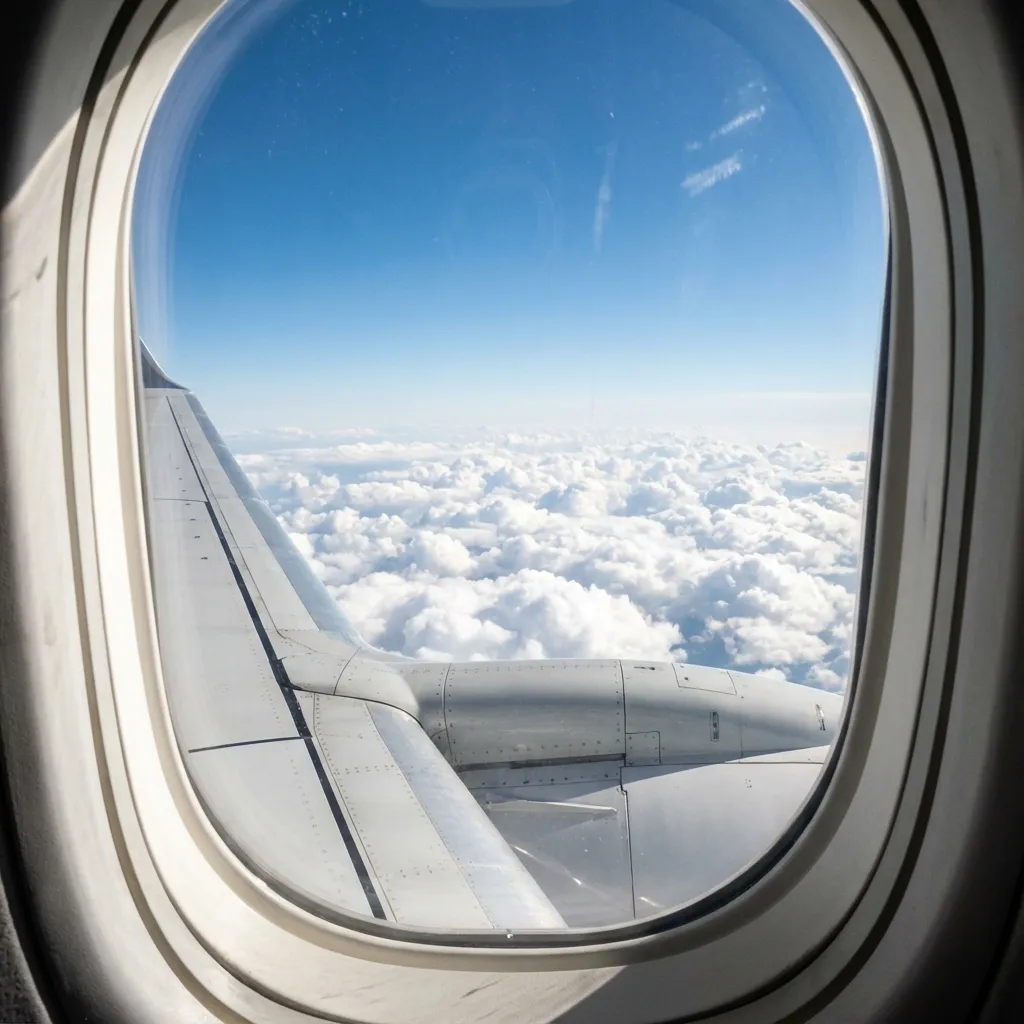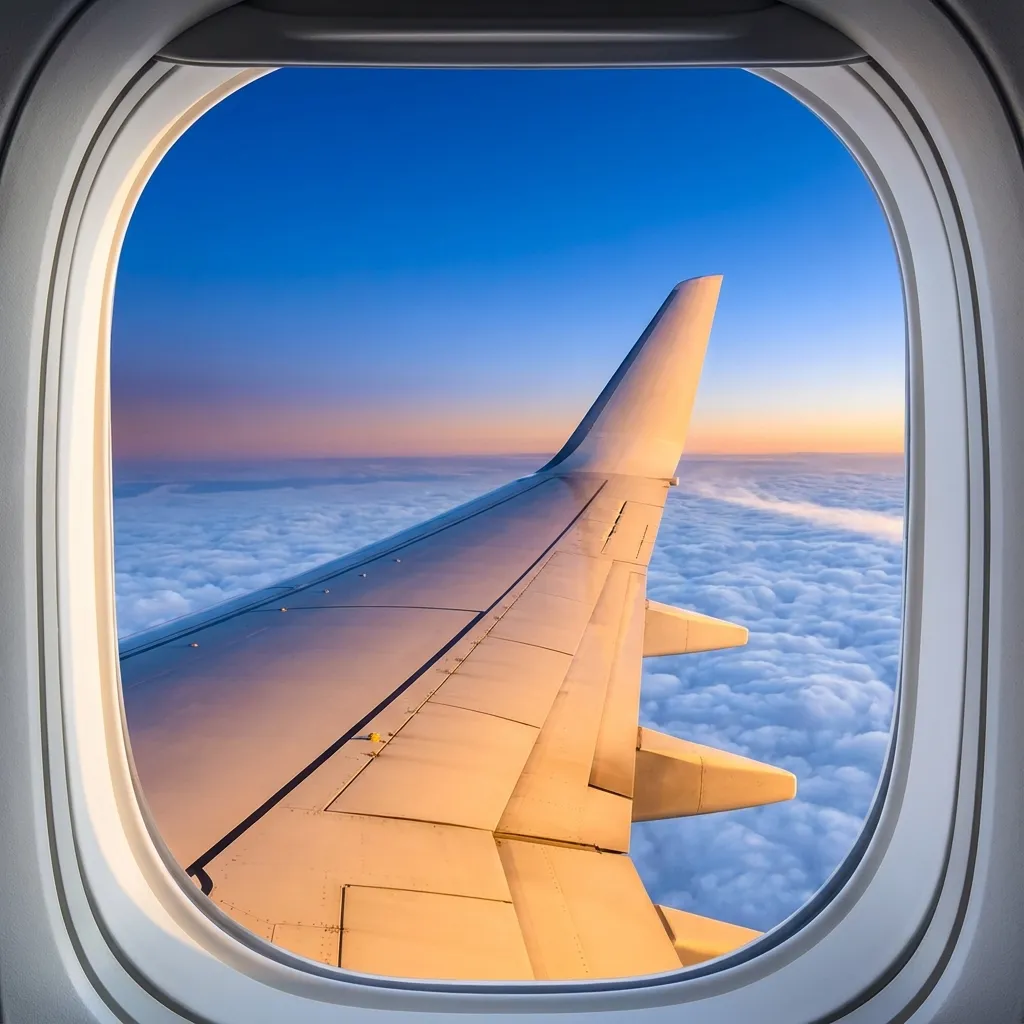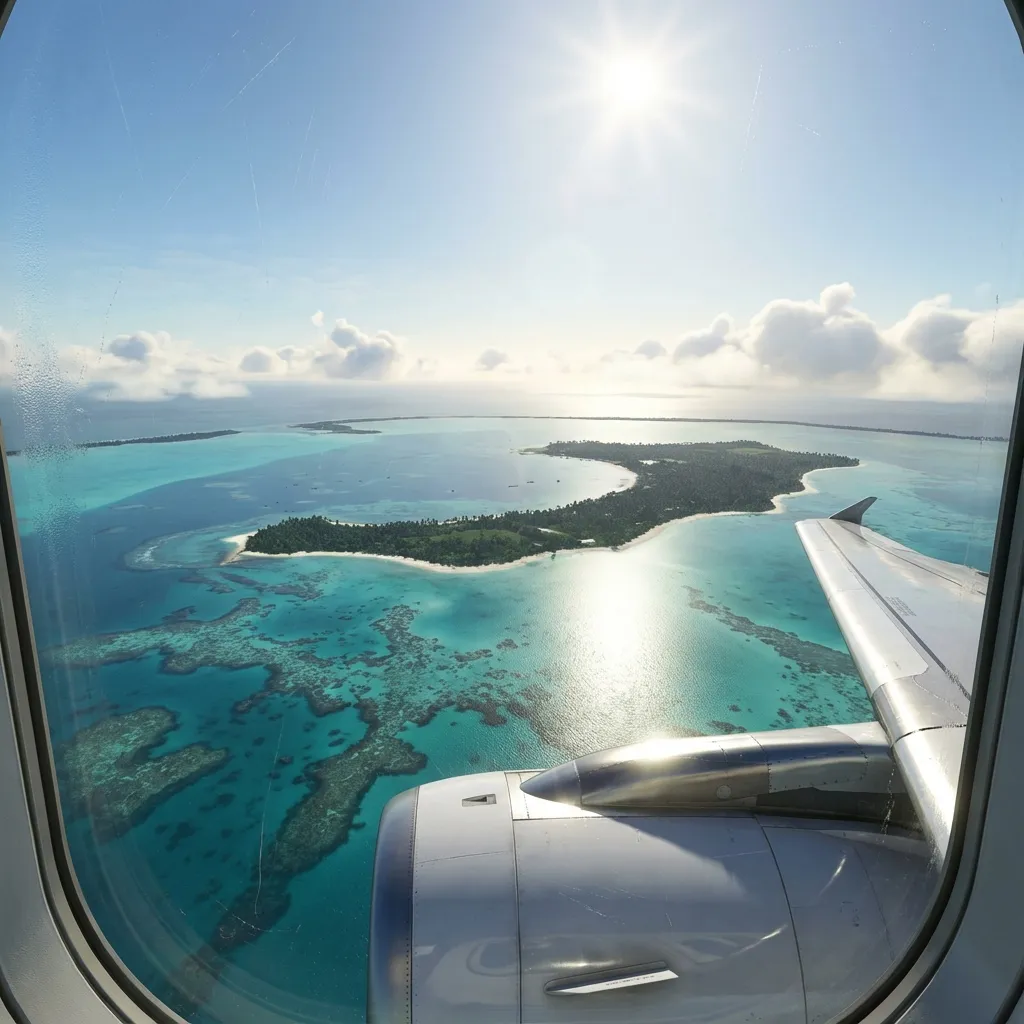The digital nomad lifestyle isn’t a vacation; it’s the delicate art of balancing a full-time job with the constant logistics of travel. Your success doesn’t hinge on the beauty of your next destination, but on the strength of your digital toolkit. In 2025, your smartphone is your front office, your bank, your travel agent, and your local guide. But simply downloading the same apps you use at home won’t cut it. The challenges are unique: finding reliable Wi-Fi fast enough for a video call, paying a Thai landlord without losing a fortune in bank fees, and figuring out if that affordable apartment in Lisbon has a desk.
Forget the generic travel guides. This is a deep dive into the essential, battle-tested applications that form the backbone of a successful life on the road. These aren’t just apps; they are solutions to the specific, recurring problems that every digital nomad faces. From securing your data on sketchy café Wi-Fi to finding a community in a city of strangers, the right tools transform chaos into a sustainable, productive, and ultimately more enjoyable way of life. This is your essential app stack for thriving, not just surviving, as a digital nomad in 2025.
Full Comparison of Essential Nomad Apps
A successful nomad’s phone is a curated collection of problem-solvers. We’ve broken down the top-tier apps by their primary function to help you build your own digital toolkit.
| App & Category | Primary Function | Pricing Model | Key Feature |
|---|---|---|---|
| NordVPN (Connectivity) | Secures your internet on public Wi-Fi. | Subscription ($3-$15/month) | High-speed servers in 100+ countries, essential for accessing home services abroad. |
| Wise (Finance) | Low-cost international money transfers. | Pay-per-transfer (tiny fees) | Provides real bank details in multiple currencies (USD, EUR, GBP) to get paid like a local. |
| Nomad List (Community/Research) | Finds cities based on cost, internet, safety. | One-time fee (~$199) | Live user data and a built-in social network to connect with nomads in your target city. |
| Booking.com / Agoda (Accommodation) | Finds short to mid-term stays. | Free to use | Extensive filters for “work-friendly” amenities like Wi-Fi and desk space. Agoda is king in Asia. |
| Skyscanner (Logistics) | Finds the cheapest flight options. | Free to use | “Everywhere” search function to discover the cheapest places to fly to from your current location. |
| Speedtest by Ookla (Connectivity) | Measures Wi-Fi and cellular speed. | Free (ad-supported) | Video testing capability to ensure a connection is stable enough for calls. |
Category Winners: The Best App for Each Nomad Need
Your app stack should be lean and powerful. Here are our definitive winners for the core challenges you’ll face on the road.
🏆 Best for Digital Security & Connectivity: A Premium VPN
Winner: NordVPN. Let’s be blunt: working on public Wi-Fi without a VPN is professional malpractice. NordVPN is fast, has a massive global network of servers, and offers a simple one-click interface. It not only encrypts your data to keep it safe from bad actors on that sketchy café network, but it also allows you to route your connection through your home country. This is critical for accessing banking apps or streaming services that block foreign IP addresses. It’s not an option; it’s the cost of doing business securely.
🏆 Best for Managing Your Money: Wise (Formerly TransferWise)
Winner: Wise. Traditional banks are your enemy as a nomad. Their hidden fees and terrible exchange rates can siphon hundreds of dollars from a single international transaction. Wise is the antidote. It uses the mid-market exchange rate and charges a tiny, transparent fee. Its killer feature is the multi-currency account, which gives you actual bank details in multiple countries. You can receive a client payment in USD and pay your rent in Euros from the same account, seamlessly. It’s the global bank account you’ve always needed.
🏆 Best for Pre-Trip Research & Community: Nomad List
Winner: Nomad List. Wondering if Medellín has fast enough internet or how much a month in Lisbon *really* costs? Nomad List has the answers. It’s a massive, crowdsourced database of cities ranked by nomad-centric metrics. The one-time fee can feel steep, but the value is immense for planning your next move. The built-in Slack and Discord communities let you ask questions and meet people on the ground before you even book a flight, solving the cold-start problem of arriving in a new city alone.
🏆 Best for Finding Your Home Base: Booking.com
Winner: Booking.com (with an Agoda chaser for Asia). While Airbnb is popular, its fees have become exorbitant for the monthly stays that nomads require. Booking.com has dramatically expanded its apartment and “aparthotel” listings, and its Genius loyalty program can offer significant discounts. The robust filtering system is key, allowing you to search specifically for properties with strong Wi-Fi scores, kitchens, and dedicated workspaces. For Southeast Asia, always cross-reference with Agoda, which often has a more extensive and cheaper local inventory.
Realistic Math Examples
The right apps don’t just add convenience; they deliver a tangible return on investment by saving you real money. Here’s how the costs and savings break down.
You need to receive a $2,000 payment from a US client and hold it in your European bank account.
- Via Traditional Bank Wire: The bank often takes a 3-5% markup on the exchange rate plus a $40-$50 wire fee. Total Cost: ~$150.
- Using Wise: You receive the USD into your Wise US bank details for free, then convert to EUR for a tiny ~0.5% fee. Total Cost: ~$10.
Money Saved on One Transaction: ~$140
You spend 12 days a month working out of cafes or co-working spaces while in a major city.
- Paying Daily: A typical co-working day pass is $25. Total Monthly Cost: 12 x $25 = $300.
- With a Co-working App: A multi-pass subscription (e.g., Deskpass) might offer 12 credits for a monthly fee. Total Monthly Cost: ~$199.
Money Saved Per Month: ~$101
You need to access your home country’s banking website, which blocks foreign traffic.
- Without a VPN: You’re locked out. The potential cost of a missed payment or unresolved financial issue is huge.
- With a VPN: A 2-year subscription costs about $80. You securely access your bank in 30 seconds.
Value: Peace of mind and critical access for ~$3/month.
In these scenarios, using specialized nomad apps results in significant, measurable financial savings and risk reduction.
Gotchas You Shouldn’t Ignore
Your digital toolkit is only as strong as its weakest link. Be mindful of these common pitfalls that can derail your productivity and security.
- The Peril of “Free” Services: If you’re not paying for the product, you are the product. This is especially true for free VPNs, which are notorious for logging user data and selling it. For core security tools, always pay for a reputable service.
- Subscription Bloat is Real: It’s easy to sign up for multiple app subscriptions and let the monthly fees pile up. Audit your subscriptions every few months and cancel anything you’re not actively using.
- Offline Mode is a Lifesaver: Your flight just landed and you have no local SIM yet. Can your map or translation app work offline? Prioritize apps (like Google Maps with offline downloads) that offer robust functionality without an active internet connection.
- Regional App Ecosystems: The best app for ridesharing or food delivery can change completely from one continent to another. Uber is useless in Southeast Asia, where Grab and Gojek are dominant. Always do a quick search for “best apps for [city]” upon arrival.
- Battery Life vs. Convenience: Constant GPS tracking, VPNs, and hotspotting can decimate your phone’s battery. Invest in a good portable power bank and be mindful of which apps you allow to run in the background.
How We Picked These Apps
This list wasn’t compiled from a quick Google search. Our recommendations are based on rigorous, real-world criteria honed over years of working and traveling globally.
- Field-Tested and Nomad-Approved: Every app on this list has been used extensively across multiple countries to solve real-world nomad problems. This is a list of workhorses, not theoretical solutions.
- Solves a High-Frequency Problem: We prioritized apps that address the core, recurring challenges of the lifestyle: money, connectivity, and a place to sleep and work.
- Cross-Platform Availability: All recommended apps are available and perform well on both iOS and Android, ensuring they’re accessible to everyone.
- Clear Return on Investment: Whether free or paid, each app provides a clear benefit that far outweighs its cost, either in money saved, time reclaimed, or significant stress reduction.
- Strong Community Trust: We favor apps that are well-regarded and frequently recommended within the digital nomad community, indicating long-term reliability and user satisfaction.
FAQs
Do I really need a paid VPN? Can’t I just use a free one?
You should never use a free VPN for work. They are often slow and, more importantly, they make money by tracking and selling your data—the very thing a VPN is supposed to protect. A premium subscription to a reputable provider is a fundamental business expense for any serious digital nomad.
How do I get a local SIM card easily when I land?
The easiest way in 2025 is to use an eSIM provider like Airalo. You can purchase and install a digital SIM card for your destination country before you even leave home. When your plane lands, you can activate it and be online in minutes, avoiding airport SIM card kiosks entirely.
Is Nomad List worth the one-time fee?
If you plan to visit more than two or three new cities a year, absolutely. The cost of one bad decision—like choosing a city with terrible Wi-Fi or a much higher cost of living than expected—can easily exceed the one-time fee. The community access alone is often worth the price of admission.
What’s the best way to track my travel expenses?
There are many great apps, but a simple and effective one is Trail Wallet. It allows you to set daily budgets and track spending in multiple currencies, converting everything back to your home currency. For something more automated, TravelBank can sync with your credit cards to track expenses automatically.
Beyond apps, what’s one piece of tech that’s a game-changer?
A high-quality, portable laptop stand. Hunching over a laptop on a low café table is a recipe for back and neck pain. A lightweight, foldable stand that elevates your screen to eye level is one of the best investments you can make in your long-term health and productivity on the road.






